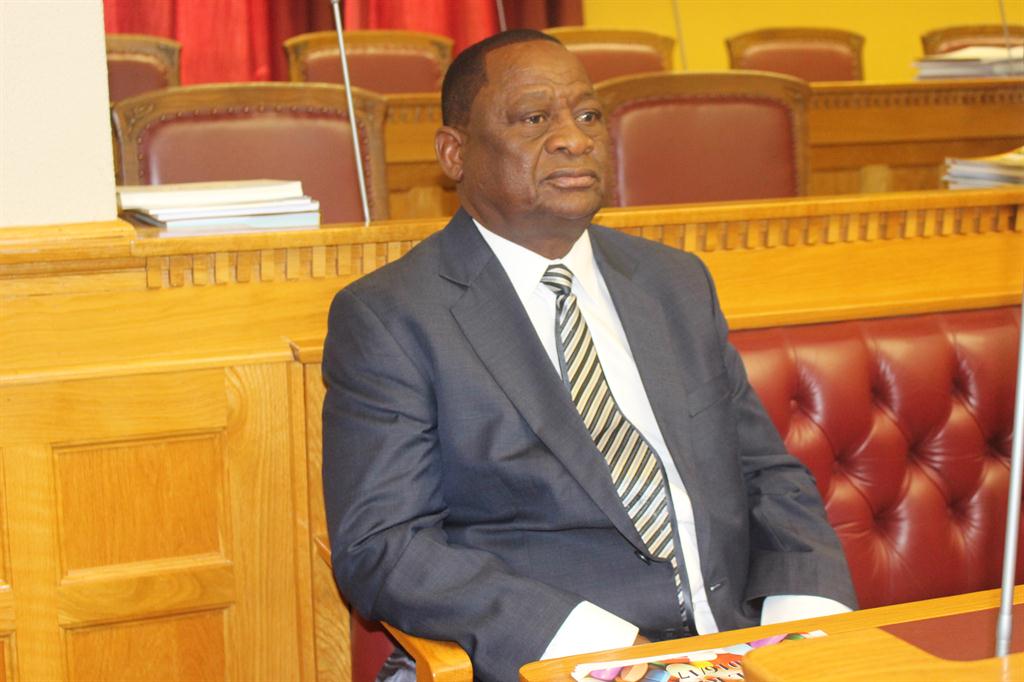Covid-19: Nationwide curfew remains
“The exponential rise in new cases indicates that there is active transmission of the virus in the community, affecting all age groups,” the health minister said.
JEMIMA BEUKES
WINDHOEK
The nationwide curfew introduced to curb the rapid spread of Covid-19 will remain in place as Namibia battles a second wave of the virus that has overwhelmed health facilities.
This was announced yesterday by health minister Dr Kalumbi Shangula, who added that public gatherings will still be limited to 50 people and that such gatherings should no longer exceed two hours and must come to an end at 20:00.
The wearing of masks remains mandatory in all public settings including public transport, which will be allowed to transport the maximum number of passengers.
Shangula also pointed out that beauty salons and parlors, fitness centres, restaurants, cafes and kapana traders should at all times ensure their patrons and clients wear masks, sanitise their hands and maintain a two-metre social distance.
Meanwhile, the suspension hospital visits has been lifted; however, no more than two close relatives will be allowed per visit, which will not exceed 10 minutes.
‘Infection is life-threatening’
The minister also announced that non-urgent medical procedures will be postponed until further notice.
“The exponential rise in new cases indicates that there is active transmission of the virus in the community, affecting all age groups. “For high-risk population groups, infection is life-threatening. In order to control and suppress the further spread of Covid-19, there is need to implement more targeted public health measures,” Shangula said.
He further announced that the first batch of Covid-19 Pfizer vaccine doses, procured through the Covax facility, is expected to arrive in Namibia by the end of January or early February.
The government has already paid N$29 million and has signed a financial commitment agreement for the remaining N$138 million.
Herd immunity
According to Shangula, 60 to 80% of the Namibian population must be vaccinated to achieve sufficient herd immunity, and government has therefore reached out to countries like China and Russia to secure additional vaccines through bilateral agreements.
Government has also called on the Namibian medical aid industry to assist their members in accessing the vaccine through their schemes. Shangula added that consultations have already started with the Namibia Association of Medical Aid Funds and the Namibia Financial Institutions Supervisory Authority to explore avenues to fund the vaccine.
“The Covid-19 National Vaccine Taskforce is busy putting mechanisms and logistics in place to roll out the vaccine. We will prioritise frontline healthcare workers and population groups vulnerable to severe Covid-19 disease once the vaccine is available. Inventory of cold chain equipment for storage and distribution of the vaccine is almost complete; however, addition equipment for vaccines that require extreme cold temperatures may be required,” the minister said.
[email protected]
WINDHOEK
The nationwide curfew introduced to curb the rapid spread of Covid-19 will remain in place as Namibia battles a second wave of the virus that has overwhelmed health facilities.
This was announced yesterday by health minister Dr Kalumbi Shangula, who added that public gatherings will still be limited to 50 people and that such gatherings should no longer exceed two hours and must come to an end at 20:00.
The wearing of masks remains mandatory in all public settings including public transport, which will be allowed to transport the maximum number of passengers.
Shangula also pointed out that beauty salons and parlors, fitness centres, restaurants, cafes and kapana traders should at all times ensure their patrons and clients wear masks, sanitise their hands and maintain a two-metre social distance.
Meanwhile, the suspension hospital visits has been lifted; however, no more than two close relatives will be allowed per visit, which will not exceed 10 minutes.
‘Infection is life-threatening’
The minister also announced that non-urgent medical procedures will be postponed until further notice.
“The exponential rise in new cases indicates that there is active transmission of the virus in the community, affecting all age groups. “For high-risk population groups, infection is life-threatening. In order to control and suppress the further spread of Covid-19, there is need to implement more targeted public health measures,” Shangula said.
He further announced that the first batch of Covid-19 Pfizer vaccine doses, procured through the Covax facility, is expected to arrive in Namibia by the end of January or early February.
The government has already paid N$29 million and has signed a financial commitment agreement for the remaining N$138 million.
Herd immunity
According to Shangula, 60 to 80% of the Namibian population must be vaccinated to achieve sufficient herd immunity, and government has therefore reached out to countries like China and Russia to secure additional vaccines through bilateral agreements.
Government has also called on the Namibian medical aid industry to assist their members in accessing the vaccine through their schemes. Shangula added that consultations have already started with the Namibia Association of Medical Aid Funds and the Namibia Financial Institutions Supervisory Authority to explore avenues to fund the vaccine.
“The Covid-19 National Vaccine Taskforce is busy putting mechanisms and logistics in place to roll out the vaccine. We will prioritise frontline healthcare workers and population groups vulnerable to severe Covid-19 disease once the vaccine is available. Inventory of cold chain equipment for storage and distribution of the vaccine is almost complete; however, addition equipment for vaccines that require extreme cold temperatures may be required,” the minister said.
[email protected]




Comments
Namibian Sun
No comments have been left on this article